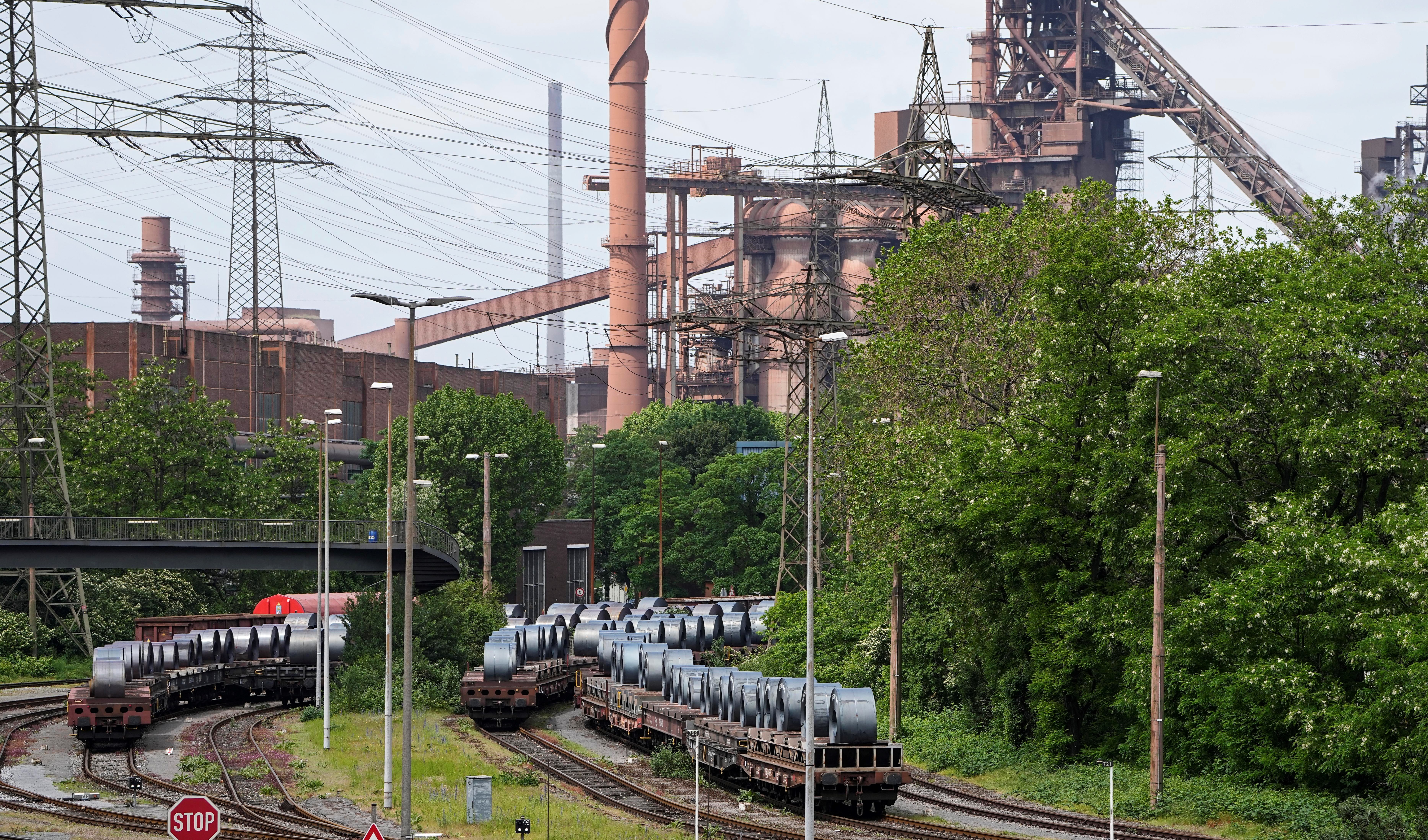German industrial production decreases, concerns about economy rise
Europe's largest economy is facing a protracted slowdown as the output in the manufacturing hub decreased by 0.2% from the previous month.
-

Steel coil is ready for transport at a steel mill of Germany's biggest producer ThyssenKrupp Steel Europe in Duisburg, Germany, Tuesday, May 23, 2023 (AP)
Unexpectedly, German industrial production decreased in May, according to official statistics released on Friday, stoking concerns about a protracted slowdown in Europe's largest economy.
According to seasonally adjusted data from the federal statistics agency Destatis, output in the manufacturing hub decreased by 0.2% from the previous month.
Financial data company FactSet surveyed analysts who predicted the indicator will show essentially no change.
Carsten Brzeski, an ING economist, cautioned that the most recent data indicated that the "German industry is still stuck in stagnation," adding that "It needs an activity surge in June to avoid an extension of the recession."
In turn, the Federal Ministry for Economic Affairs and Climate Action of Germany sought to be optimistic despite the negative data and said "The recent stabilization of demand points to a recovery -- albeit moderate to begin with -- in the industrial economy in the coming months," and warned that somber indicators in the past two months "have not taken away the risk of a further contraction of the German economy."
Germany's production might shut down if Russian gas halted: Habeck
Europe's largest economy could end up shutting down industrial production if Ukraine's agreement with Russia to transit gas to Europe is not extended, Germany's Economy Minister Robert Habeck warned earlier in June.
The gas transit deal, which is set to expire at the end of 2024, is still a main source of energy for countries such as Italy, Austria, Hungary, and Slovakia, and remains a source of revenue for Kiev, which earns transfer fees by allowing gas passage through its territory.
On May 2, the Federal Statistical Office Destatis said that Germany had officially fallen into recession, revealing that the country's GDP recorded a growth decline in two consecutive quarters.
Read more: German gas giant begging for state funding
In an economic forum in eastern Germany's Bad Saarow, the Vice Chancellor cautioned that policymakers should avoid “making the same mistake again” of presuming that the economy will not be impacted without preparing plans to secure energy supplies.
“There is no secure scenario for how things will turn out,” he stressed.
Germany will have to export gas to Eastern European countries to fill potential demand gaps in accordance with EU rules of sharing energy shortage burdens, leaving German producers with limited or even no gas supplies, he added.
This will make establishing the planned LNG terminals north of the country, a project that would increase storage capacity but is opposed by locals and environmental activist groups, vital to maintaining energy flow to Eastern Germany and Eastern Europe, Habeck said.
Read more: German AfD right wing party secures mayoral win; popularity surges

 3 Min Read
3 Min Read








